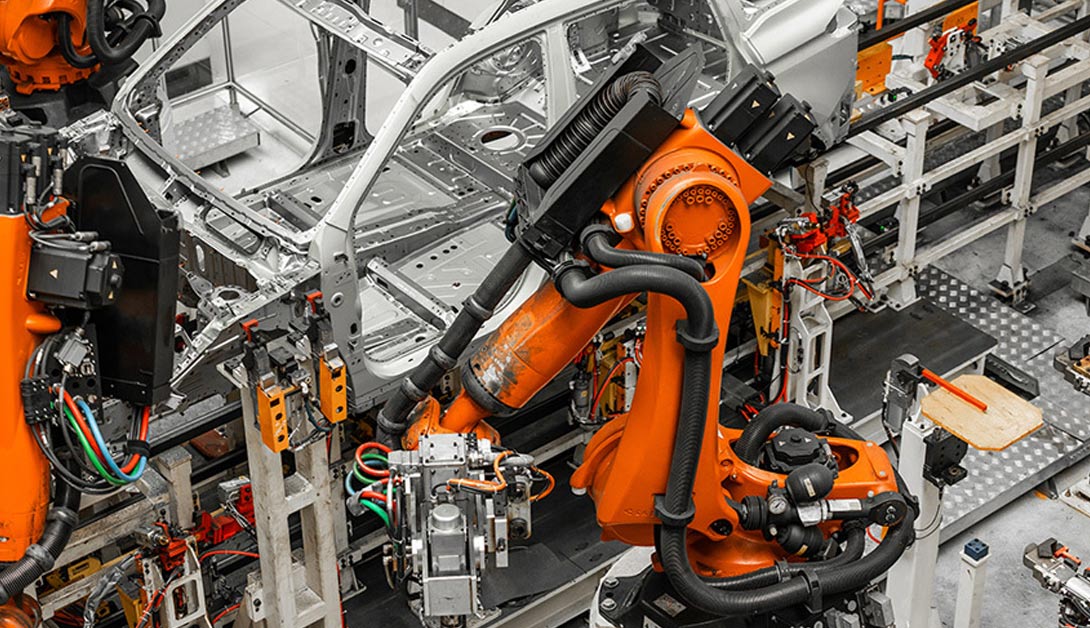Redefining Manufacturing Process with Smart Tech
Indubitably, smart manufacturing has been gaining momentum, and manufacturers especially from the pharmaceutical and medical device industries are starting to realize the benefits. At ComplianceQuest, we have collated important information under a whitepaper- Smart ‘Manufactory’ Reloading the Manufacturing Process.
According to Facts and Factors market research report, the global medical device market size and share revenue are expected to grow from USD 471 Billion in 2020 to reach USD 623 Billion by 2026, at 5% annual CAGR growth while according to the Global Pharmaceuticals Market Opportunities and Strategies Report; 21 Oct 2020, the pharmaceuticals market reached a value of nearly $1,217.1 billion in 2019, at CAGR of 6.7% since 2015 and is expected to grow at a CAGR of 8.5% from 2021 and reach $1,738.2 billion in 2023. The market is expected to reach $2,050.9 billion in 2025 and $3,206.3 billion by 2030³. These statistics indicate tremendous potential for pharmaceutical and medical / diagnostics, and life science manufacturing companies. We have seen during the pandemic that companies in the healthcare and supplies, pharmaceuticals, medical and diagnostics devices were shielded or were the less impacted sectors. Now, the larger question is, “Are we prepared for the next level of manufacturing too?”
A New Tilt in Manufacturing
The manufacturing shop floor remains one of the most important areas to be considered for smart manufacturing, for this is where the transition to smart technology begins.
Smart manufacturing does not imply that production activities such as procurement of raw materials, storage, processing, packaging, and distribution of finished goods, will be shifted to the “Cloud”. Rather, it means the mentioned activities at the manufacturing site will be controlled by trained and highly skilled human resources ably assisted by high-end interconnected technologies. The production process will be integrated with internet-driven, self-controlling sensors and optical cameras with Artificial Intelligence (AI), Machine Learning (ML), Industrial Internet of Things (IIoT), Cloud Computing, etc., and the whole process will be data-driven. The advent of such technologies is set to change the way we manufacture products and convert materials forever. It may be used in combination or standalone systems to digitalize traditional manufacturing, thereby increasing efficiency, safety, accuracy, and real-time quality control without much human interference. This does not mean the complete elimination of human activity but simply implies a change in their role.
A widespread myth in the industry is that growing reliance on data or driving machines using data may lead to data leakage issues resulting in a significant threat to the company’s operations! Unless malevolent thoughts exist within the organization, such instances are next to impossible. The buzzword for such protection in the medical device and pharmaceutical industry is ‘Validation’. A well-validated, smart manufacturing system is highly secure and cannot be breached as such, ensuring data integrity and assuring accountability in the manufacturing process.
To learn more about smart manufacturing and how CQ can help you achieve quality excellence:
Request a Personalized Demo“We have just migrated our change, complaint, audit, and document management system onto the EQMS provided by ComplianceQuest. ComplianceQuest has given excellent support in providing customization to our specific QMS requirements and sustained guidance through the entire migration and integration process. We are receiving excellent feedback from the users on the interactive and easy to the user interface. Data analysis & review and cross-functional collaboration can be done in real-time, which has really enhanced our QMS. Highly recommended!”
~ Sudharshan Shetty, Manager QA & Management Representative, CEAT Ltd
Read more such testimonials from our customers on Salesforce AppExchange
To unravel more about the Smart ‘Manufactory’, check out our detailed whitepaper- Smart ‘Manufactory’ Reloading the Manufacturing Process





